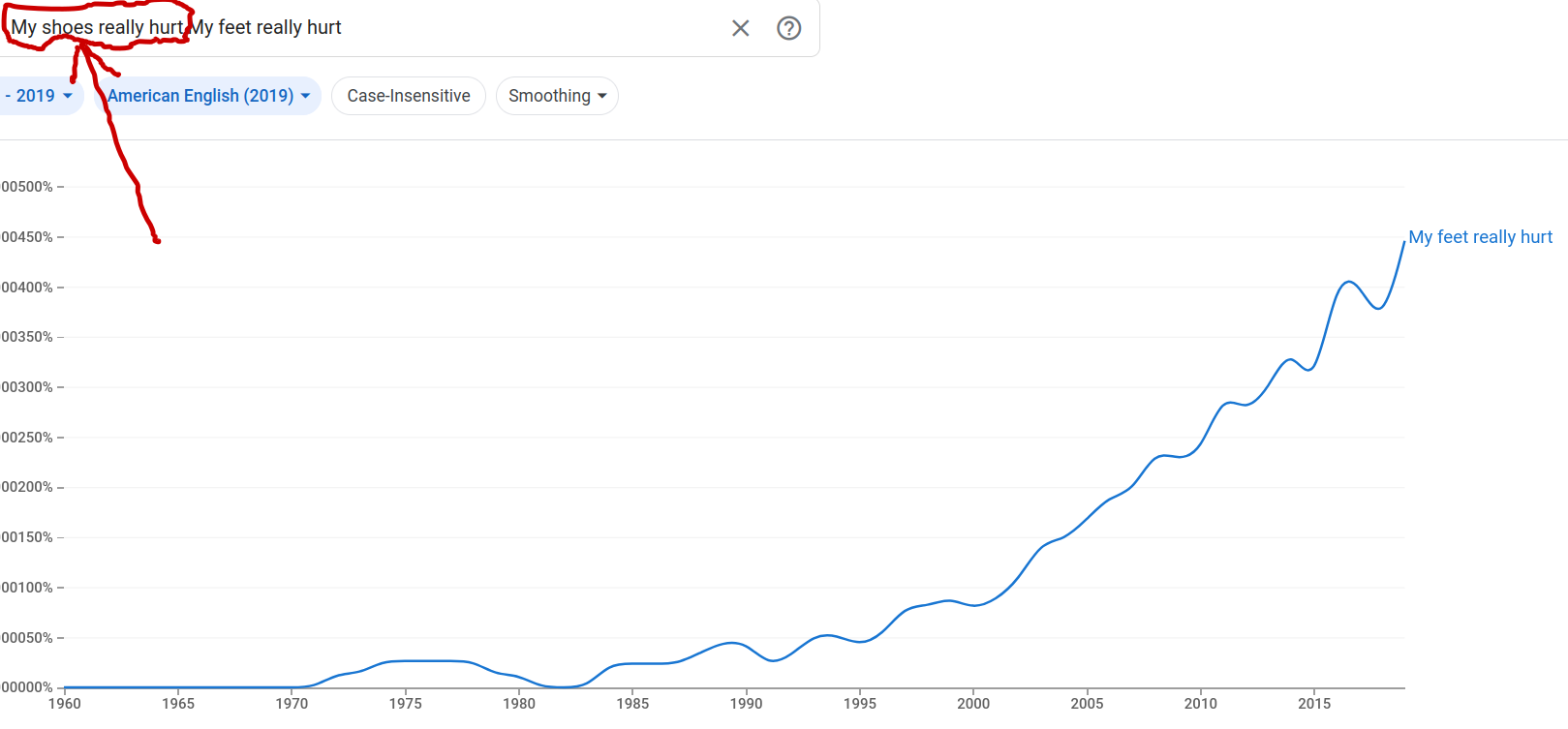In my native Romanian there is an expression that literally means "my shoes are beating me" when they hurt, and thus are producing pain, abrasion of the skin and calluses (mă bat pantofii). The use of the verb "to beat" was maybe originally metaphorical but now is descriptive. The verb "to beat" has simply gained a new specific meaning.
I know one can say in English "my shoes are too tight" or "not broken in yet". But is there a specific similar expression saying what the shoes are "doing" to me?
(I have realized I don't know this when for other purposes I have looked into some Latin/Romance etymologies and the semantic relation between violent action (to beat, to kick), the act of walking and that of creating/opening a path.)


